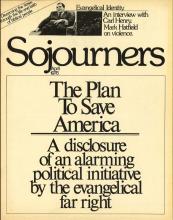It is only since putting aside childish things that it has come to mind so forcefully -- and so gladly -- that the circus is among the few coherent images of the eschatological realm to which people still have access and that the circus thereby affords elementary insight into the idea of society as a consummate event. The circus, thus, furnishes a precedent of a commendable style of life in community.
This institution, this art, this veritable liturgy, this common enterprise of multifarious creatures called the circus enacts a hope, in an immediate and historic sense, and simultaneously embodies an ecumenical foresight of radical and wondrous grandeur, encompassing, as it does, both empirically and symbolically, the whole of creation.
I suppose some -- ecclesiastics or academics or technocrats or magistrates or potentates -- may deem the association of the circus and the kingdom scandalous or facetious or bizarre and scoff quickly at the thought that the circus is relevant to the ethic of society. Meanwhile, some of my friends of the circus may consider it curious that during intervals when I have been their guest and, on occasion, confidant, that I have had theological second thoughts about them and about what the corporate existence of the circus tells and anticipates about the gift of life in society in a general and ultimate sense. I only respond that the connection seems to me to be suggested when one recalls that biblical people, like circus folk, live typically as sojourners, with few possessions and in tents, in this world.
Read the Full Article

